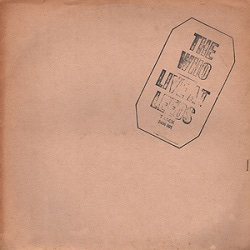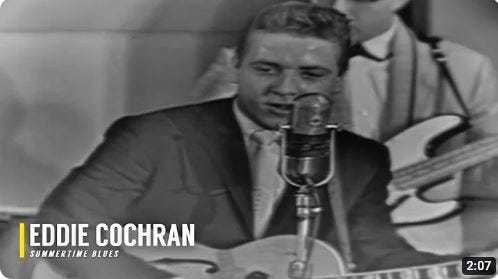The 25 Best Live Rock Recordings - No. 7: Live At Leeds
No. 7 - The Who - Live at Leeds (Decca, 1970)
Sometimes it begins with,
“I just plain missed it. I was so blinded by the immense gravity of Who’s Next (Decca, 1971) that Live At Leeds and its precursor, Tommy (Track, 1969), were in the rearview mirror. ‘Baba O-Riley’ and ‘We Won’t Get Fooled Again’ drowned everything else out.”
The original release of Live At Leeds would barely be considered an extended play offering with its meager six selections:
“Young Man Blues” (Mose Allison, originally from Back Country Suite (Prestige, 1957))
“Substitute” (originally released as a single (Atco, 1966))
“Summertime Blues” (Eddie Cochran, originally released as a single (HMV, 1958))
“Shakin’ All Over” (Johnny Kidd, originally released as a single (HMV, 1960))
“My Generation” (from My Generation (Brunswick, 1965))
“Magic Bus” (originally released as a single (Decca, 1968))
Three cover tunes and three originals, 48 minutes and 36 seconds of relentless rock and roll, that is what this vinyl held for listeners. The elephant in the room is that these six performances were among 31 songs, including all of the rock opera Tommy (Track, 1969). Since the original LP release, Live At Leeds has enjoyed two substantive re-releases: the first in 1995 on CD, including most of the Leeds concert, but missing most of the performance of Tommy except for the inclusion of “Amazing Journey/Sparks”) The concert release was further expanded in 2001, with the complete concert, but not in the original programming order.
In 2010, the 40th Anniversary Edition was released, containing the complete Leeds show plus one recorded at Hull the following day. It is an exceptional live recording…but not the one we are considering here.
The material released on the original LP version of Live At Leeds is a compression of the entire concert. The 15-minute “My Generation” performance includes the Tommy finale “See Me, Feel Me” and the coda from “Sparks” avoiding a complete shutout of Tommy material. This glorified extended-play recording (by twenty-first-century standards) is by a power trio with no peers supporting the best voice in rock music at the time. Peter Townsend proves why he is both an excellent composer and guitar player, while John Entwistle gives a master’s seminar on wall-to-wall trio bass playing. Roger Daltrey’s vocals are singular and drummer Keith Moon begins defending those who believe he is the best rock drummer (his style is so singular, that he could be considered the Jimi Hendrix of rock drumming).
On Live At Leeds, the Who illustrates how songs of the recent past may be effectively transformed into a very different and vital present and future. Compare these two performances of Eddie Cochran’s “Summertime Blues:”
Eddie Cochran on The Town Hall Party, February 7, 1959
The Who on Live At Leeds, February 14, 1970
The comparison proves that one, Eddie Cochran was too cool for school, and two, the Who were determined to conquer the world of rock music. Often overlooked in the shadow of the Beatles, the Rolling Stones, and Led Zeppelin, the Who possessed their singular brand of charm that continues today, in twilight.





